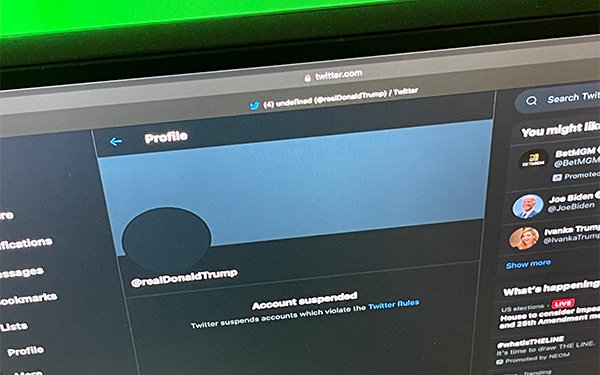
Florida Governor Ron DeSantis on Monday signed a law
that would prohibit social media companies from banning political candidates for statewide office.
The law (SB
7072) -- which is all but certain to face a court challenge -- exempts companies that own theme parks in the state, provided they're at least 25 acres and draw at least 1 million visitors per
year. Comcast (which owns theme parks including Universal Orlando) and Disney (owner of Walt Disney World) would both meet that definition.
The law specifically subjects social media companies
to fines of $250,000 per day for “deplatforming” candidates for statewide office, and $25,000 per day for other offices. (The bill allows for temporary suspensions of up to 14 days.)
The bill also prohibits social media companies from “censoring,” “deplatforming” or “shadow banning” journalistic enterprises based on content.
advertisement
advertisement
Another
provision requires social media platforms to publish its content moderation standards, and apply them consistently. The law empowers state residents to sue over violations.
Earlier this year,
the Republican governor called on state lawmakers to pass a bill aimed at cracking down on tech companies, asserting they are biased against conservatives -- despite a lack of evidence that tech
companies disproportionately suppress conservative views. He called for the crackdown in early January, shortly after the major social platforms suspended the account of former President Donald
Trump.
DeSantis repeated his criticisms of tech companies Monday, when he signed the legislation.
“Silicon valley is acting as a council of censors,” he said, adding that
tech companies “use shadow banning and secret algorithms to shape debates and control the flow of information.”
“They are some of the major reasons this country is
divided,” DeSantis added. “Silicon Valley thinks they know better than you.”
“Every day they act as the proverbial Big Brother,” he said. “It's time to step
in and ensure that we the people, especially our everyday Floridians, are guaranteed protection against the Silicon Valley power grab.”
Critics, including the digital rights group
Electronic Frontier Foundation and Silicon Valley's Internet Association, say the bill is unconstitutional because it violates tech companies' rights to exercise editorial control over the material
they allow on their services.
“This law ... is mostly performative, as it almost certainly will be found unconstitutional,” the digital rights group Electronic Frontier Foundation
said earlier this month.
The organization noted that in 1974, the Supreme
Court struck down a Florida law that attempted to require news organizations to publish politicians' speech.
The current bill's exemption for theme parks makes the measure even less likely to
survive a constitutional challenge, according to the digital rights group. That's because an exemption for Comcast and Disney means the bill is even less likely to solve whatever problem it was
designed to remedy.
The exemption also led the Electronic Frontier Foundation to speculate about the “amusing possibilities” that large internet companies could protect themselves
from fines by purchasing theme parks in the state -- an option that the digital rights group says “could easily be less expensive than compliance” with the proposed law.
The
Silicon Valley lobbing group Internet Association has also condemned the bill.
“The Florida Legislature has decided to put politics over policy with the passage of SB 7072,” the
organization stated last month. “The bill is unconstitutional, arbitrarily exempts large Florida-based corporations, and will hurt the citizens of the state.”